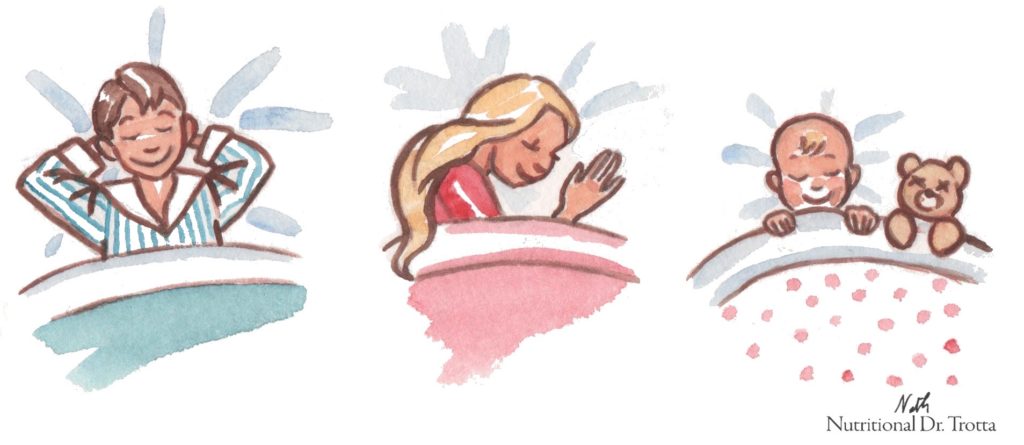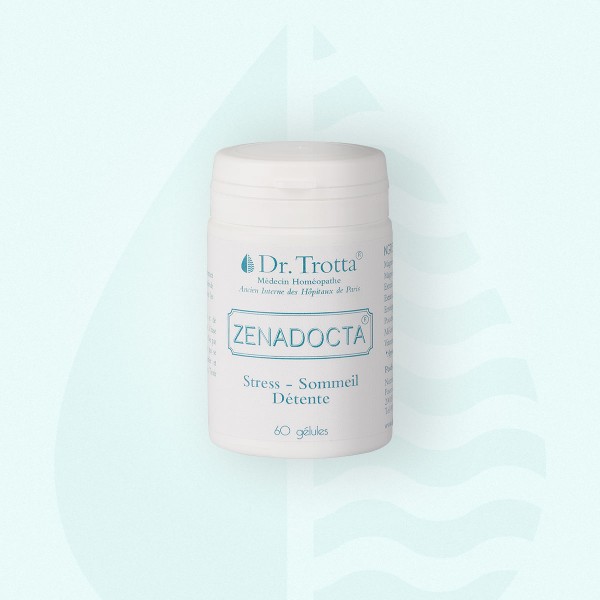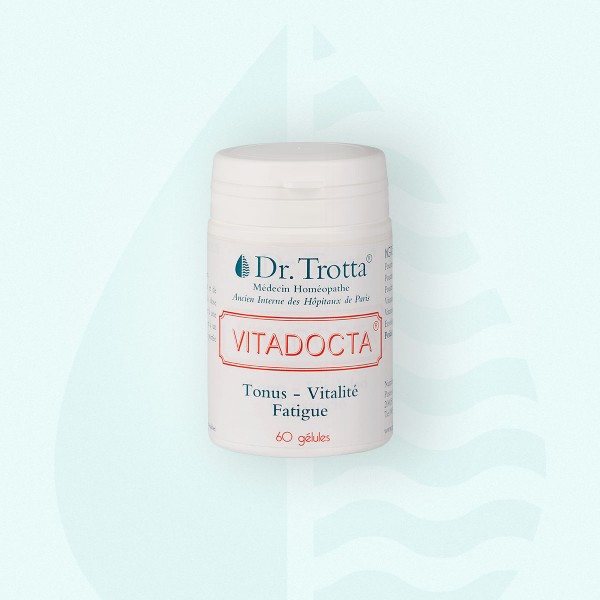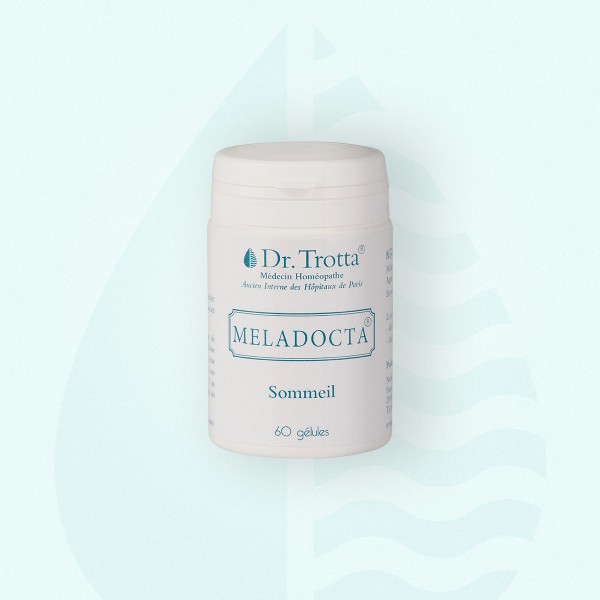Better sleep for better living
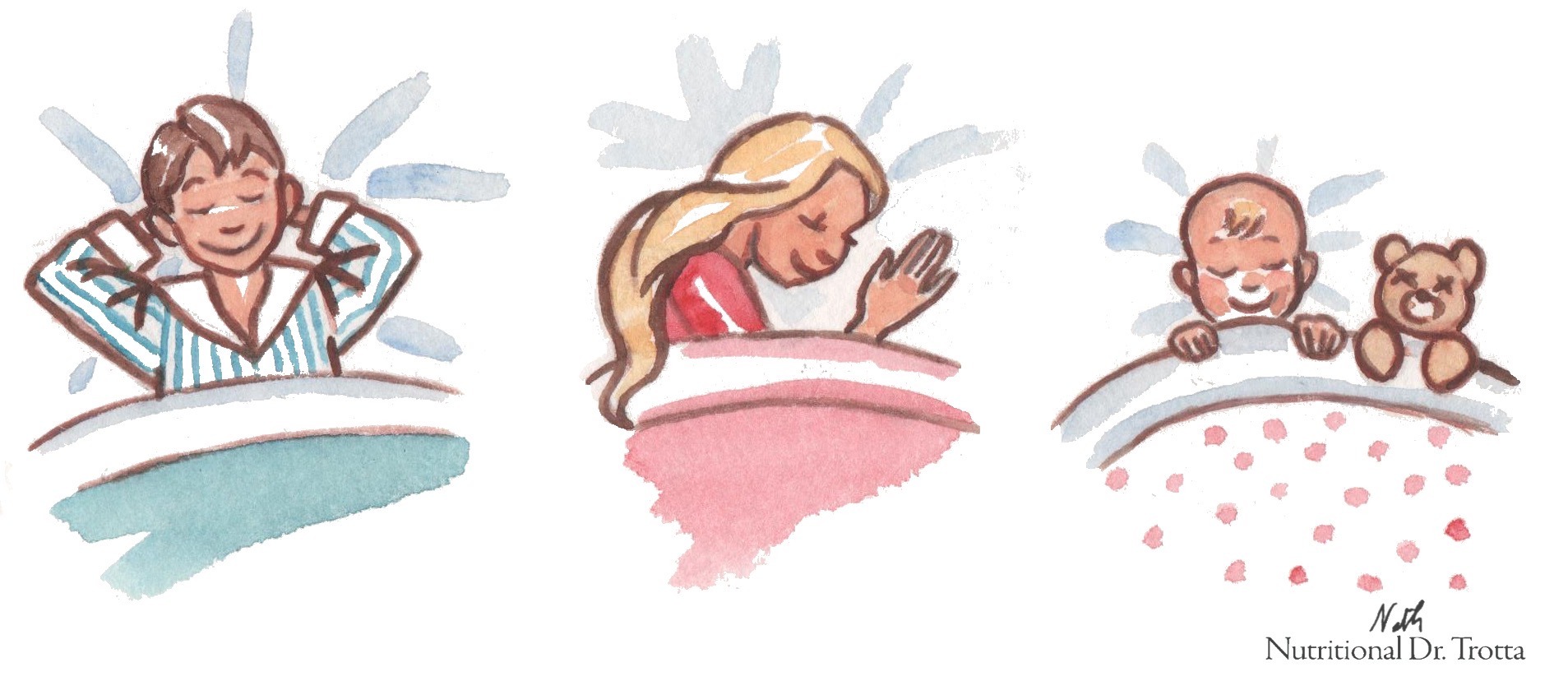
Dr Trotta’s advice on how to get the restful sleep you need to live and stay healthier.
How to sleep better naturally: Tips and supplements for restful sleep
The importance of a balanced diet
It’s well established that dinner influences the quality of our sleep. A light meal promotes more restful sleep by avoiding overloading the liver during the night, a critical period for detoxification and body repair. For those seeking to optimize their sleep while controlling their weight, evening micro-fasting is a recommended approach.
Avoid sleep disruptors
Consumption of stimulants such as coffee, tea and chocolate after 6 p.m., as well as meals rich in sugars and industrial additives, can significantly disrupt sleep. Reducing these elements can help maintain a healthy circadian rhythm, essential for deep, restorative sleep.
Managing exposure to electromagnetic waves
In our modern environment, minimizing exposure to electromagnetic waves before going to sleep is crucial. This includes restricting the use of electronic devices and managing exposure to Wi-Fi and other waves in the bedroom.
Supplements for healthy sleep
Dr. Trotta recommends specific supplements to promote restful sleep:
- ZENADOCTA Ideal for reducing stress and improving sleep quality, thanks to ingredients such as Rhodiola and Valerian.
- MELADOCTA Helps make up for melatonin deficiencies and promotes faster sleep.
- VITADOCTA and C-Docta Support optimal immune system function and stress regulation, contributing to better sleep.
Conclusion
Adopting a holistic approach that includes a suitable diet, management of the night-time environment and judicious use of supplements can greatly improve the quality of your sleep. For more details on each supplement and personalized advice, go directly to website of Dr. .
Dr Pascal Trotta -, 13 Dec 2024
Here is the list of updated references, including Dr Trotta’s books with their direct links:
- Walker, M.P., & van Der Helm, E. (2009). Overnight therapy? The role of sleep in emotional brain processing . Psychological Bulletin, 135(5), 731-748.
This study highlights the importance of sleep in regulating emotions and processing emotional experiences. - Ferrara, M., & De Gennaro, L. (2001). How much sleep do we need? Sleep Medicine Reviews, 5(2), 155-179.
A review article that examines the amount of sleep needed for optimal health and explores the consequences of sleep deprivation. - Xie, L., Kang, H., Xu, Q., et al. (2013). Sleep drives metabolite clearance from the adult brain. Science, 342(6156), 373-377.
This study explores the crucial role of sleep in the elimination of metabolic waste accumulated in the brain, contributing to the prevention of neurodegenerative diseases. - Trotta, P. (2023). L’alimentation, la première Médecine pour rester en pleine santé toute sa vie. Available here.
This book explores the impact of diet on health and offers practical solutions for adopting adapted nutrition over the long term. - Trotta, P. (2023). Devenez Acteur de votre Santé: Guide de santé libre et naturelle. Available here.
This guide proposes a global approach to regaining autonomy in health matters, by adopting natural and concrete solutions.
